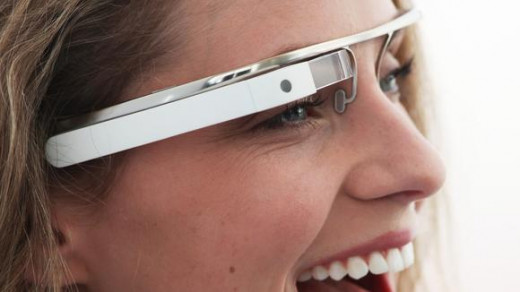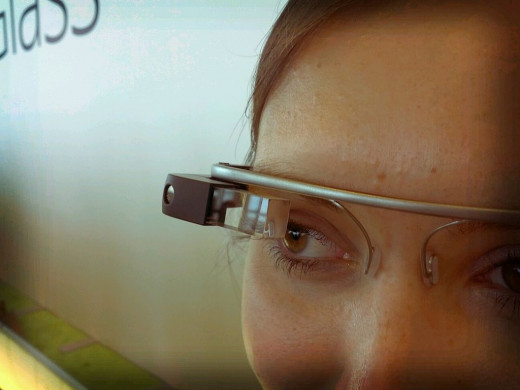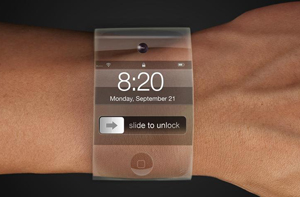- HubPages»
- Technology»
- Computers & Software»
- Computer How-Tos & Tutorials
Will Google Glasses Be Successful?

The volume of information available to us has exploded over the past 20 years. Back before the mid 1990s, information was available, but it took effort to obtain it. With the development of the internet, finding the info you need has become easy. If you need to find out how to remove a grape juice stain from your new couch, who led the National League in home runs in 1953 or where the nearest good Chinese restaurant is, that info is just a short web search away. With the internet, finding what you need to know is instant. If you want to know what the weather will be tomorrow, there is no reason to wait for a local weather report to be broadcast on TV or radio when a quick look on the net will provide that knowledge for you. And now with the advent of smart phones, tablets and other devices, this data has become portable. Everywhere you go there are people checking their portable devices for information. We are deluged with vast amounts of information, the likes of which we could never imagine a generation ago. In fact, this laptop that I’m writing this Hub on has access (through my internet connection) to more information than is in my local public library.
Throughout this information explosion, computer and cell phone makers have never been shy about producing devices that will allow us to access that information. Some of these devices have been successful, while others have not. But have we reached the point where the public will not go for the “next big thing”? Don’t count on it.

Google Glasses may be the “next big thing”. Developed by the secret Google X labs, these “augmented reality glasses” are lens less glass frames with a small computer and head up display (HUD) over the right eye. It is, as Fast Company put it, “a smart phone for your eyes”. Operated by voice, this computer can take videos and pictures, perform web searches, give directions, send messages, translate languages, and play music as well as other functions. Google Glasses are still in the prototype stage. They are currently being tested by a small, select number of people but Google plans to have them on the market by the end of 2013. The small number of beta testers paid $1,500 apiece for the prototypes, but Google has said that the consumer versions will be less expensive.
In order for this to be the “next big thing”, Google has to overcome a few problems. One of the features of Google Glasses is that they can take pictures and videos, and upload them to the internet, often without the subject’s permission. This violation of privacy has some people upset even before the release of this device. An online group called stopthecyborgs.com has vowed to fight “the algorithmic future one byte at a time” Google has a history of violating privacy and giving the information to retailers and advertisers. And since the Glasses have no memory on them, the videos , pictures, and messages are uploaded immediately to Google servers. Scott Cleland, an internet analyst, in a dailymail.co.uk interview called the product “creepy” and said Google Glasses were “the ultimate escalation of Google’s privacy invasion” A few other entities are also not happy with the product that hasn’t even been released yet. One bar in Seattle has already banned the glasses and testers in San Francisco have been nicknamed “Glassholes".
According to the testers, the Glasses are generally “impressive”. But they do have a few problems. For one, the HUD screen can be distracting if you are trying to concentrate on something else, and friends feel uncomfortable when talking to a wearer using them. They aren’t sure whether they have your full attention. Prescription glass wearers complained that the HUD was hard to see. Another problem is the testers are self conscious wearing them. As one website, techradar.com put it, a wearer looks like “a dork”. To rectify this Google has future plans to team with regular and sun glass manufacturers to make them a little more trendy. They have said that a version which will be able to use with prescription glasses will be available soon after the initial release.

Other problems the Glasses have are more mundane. While other electronic devices, like smart phones, fit nicely in your pocket, Google Glasses must be worn. They would lead to distractions. A website joked that the Glasses would cause people to bump into walls. There is some truth to that possibility. A person who is wearing and using these while driving creates a danger to himself and others on the road. Many states, including my own, have laws about texting and otherwise being distracted while driving, The size of these devices may make enforcement of these laws tougher.
Google has another hurdle to overcome: Is the public willing to shell out money for the glasses when a smart phone can do all the things it can? Sure, tech geeks will purchase it because it is new and they think it is cool. But the rest of us? Google has to convince enough of the public to “want” this device. Just because it may be the apex of technology at this point, does not mean the public will want it. In 2001, the Segway scooter was released. Advance buzz said it was going to change the way we live. While it has claimed a niche market (law enforcement, military, college campuses) it failed with the public. Unless Google Glasses is marketed as a cool, inexpensive item that can make the wearer feel good about himself, it will fail as well.


*******
But Glasses are not the only wearable products Google is developing. Google X labs is also developing Talking Shoes. These shoes offer encouragement to get moving and give updates on your workout. The closest competition to the Glasses is the iWatch, being developed by Apple. It looks like a small iPhone 5 strapped to your wrist with a leather band. It is still under development but there are rumors it will be released later on this year.
But what does this all mean? I am the antithesis of a tech geek. When new technology is released, I wait until it has been perfected and I determine that I absolutely need the product before I buy. I can’t imagine any scenario where I would want to buy a pair of Google Glasses. But I could be wrong. (Fifteen years ago I had no need for a computer and the newfangled thing they called the internet!).
Will Google be able to convince enough people that they need to own a pair of Google Glasses? Tech geeks will buy. But they are a very small sliver of the buying public. Apple has been successful in convincing the general public to purchase it’s products. Can Google do the same? In this economy many people have cut way back on their discretionary spending. Google has a tough road ahead of itself with these Glasses. It will be interesting to watch their effort.








